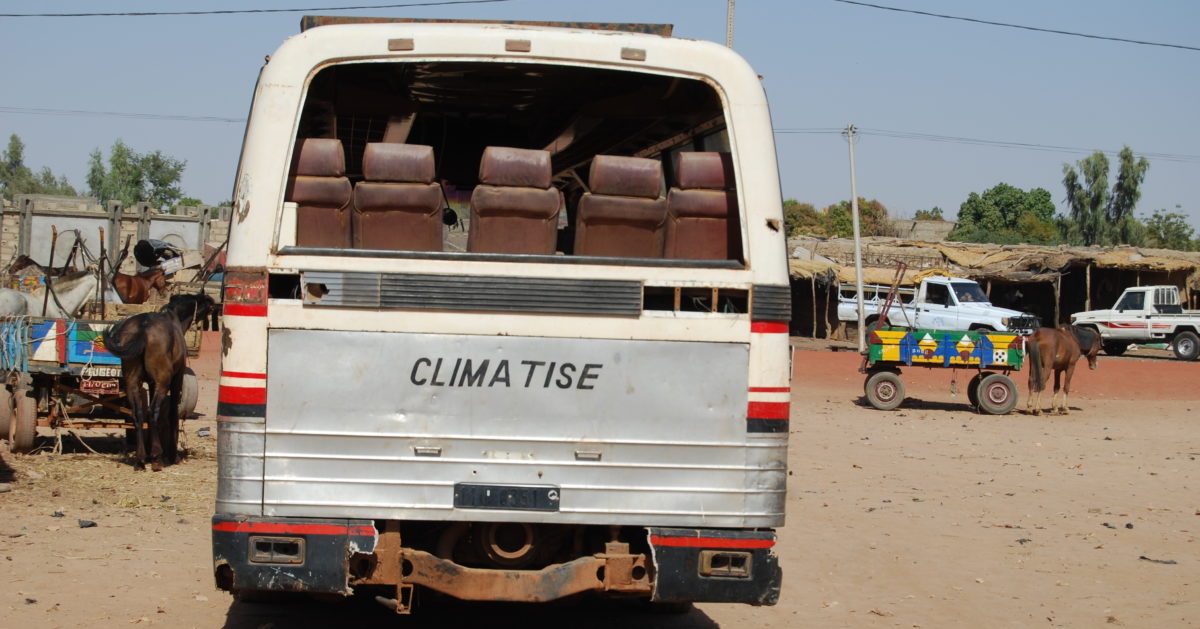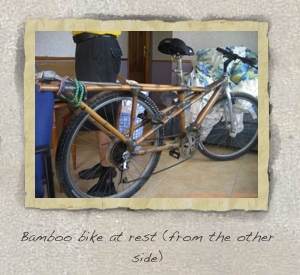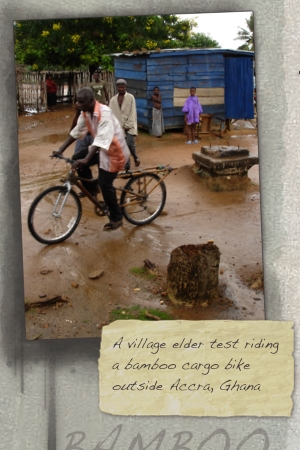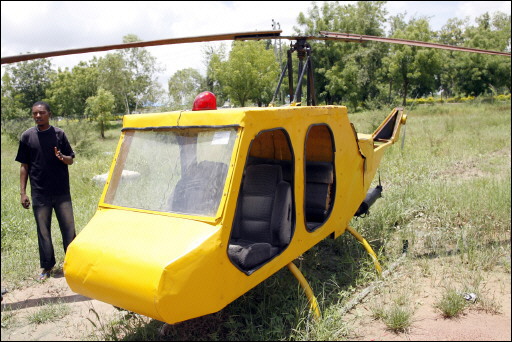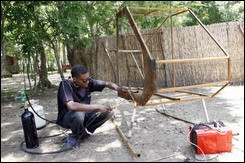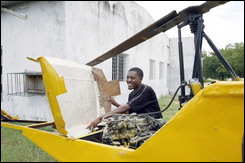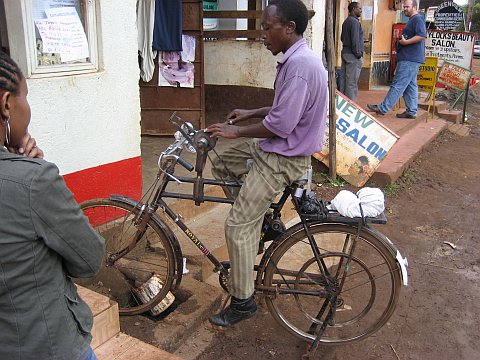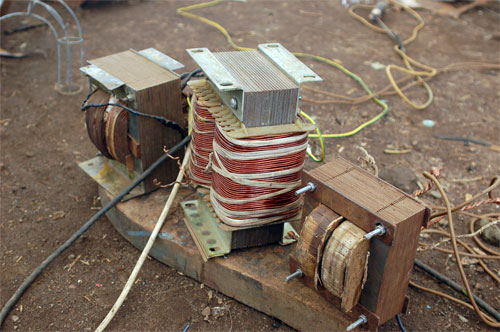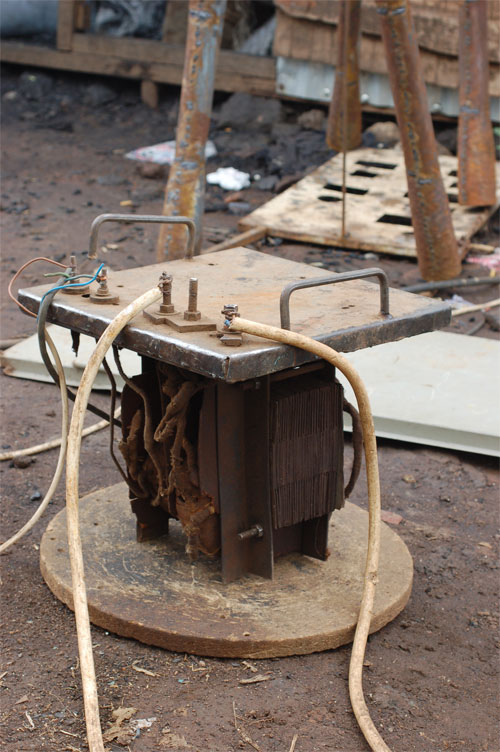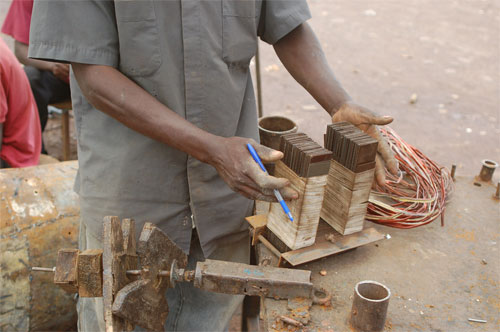The Bamboo Bike, an endeavour that aims at building bicycles in a sustainable fashion using bamboo as the primary construction material, is a joint project run by Craig Calfree of Calfree Design, a high tech bicycle design firm based in California and The Earth Institute at Columbia University.
The bicycle is the primary mode of transport in Africa and it is used for everything from personal transportation to moving medicine and the sick to hospital. Sadly, the design used in most of Africa has not changed for the last 40 years to take into account the different ways in which the bicycle is used. In fact, most bikes in use in most of Africa today are based on a colonial British design tailored to individuals travelling short distances on smooth roads.
While making bike frames based on bamboo is not a new idea, most bamboo frame designs simply use bamboo for construction material in a traditional bike frame design. Leveraging the unique properties of bamboo such as its strength and flexibility to meet the specific needs of populations local to various parts of Africa is one of the primary rationale behind the Bamboo Bike project.
The team working on the Bamboo Bike project in the US, Ghana and Kenya among other locations have a interesting blog (last updated in the summer of 2007) that chronicles the struggles of the project team while on site in Africa.
Project gear including Bamboo Bikes and clothing is available on the Bamboo Bike and Calfree Design websites.

